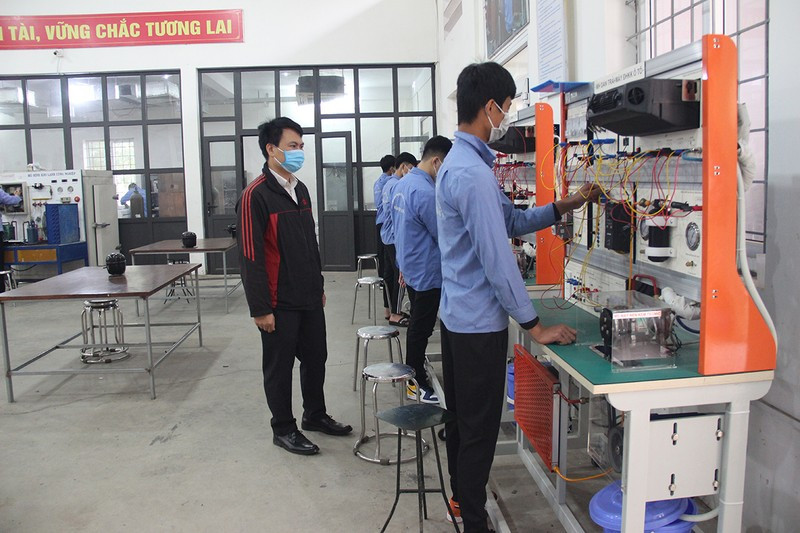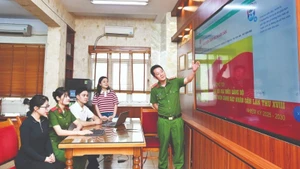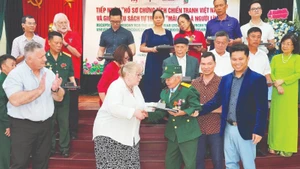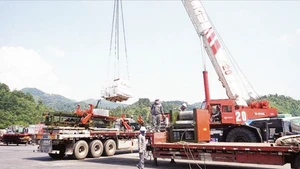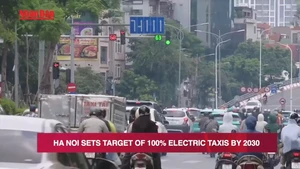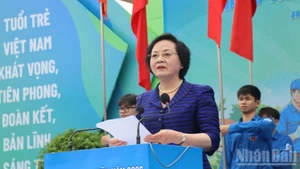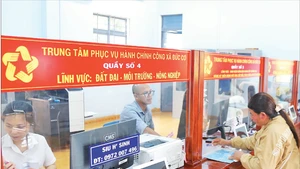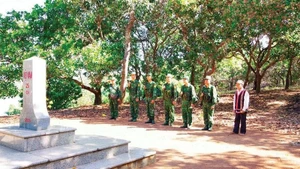To meet the demands of the labour market amidst the process of industrialisation and modernisation. Hung Yen Province continues to focus on improving the quality of vocational training, especially key jobs, and creating high-quality human resources.
Positive progresses
The College of Electrical Engineering and Irrigation is one of the institutions in Hung Yen Province that has taken the lead in improving the quality of vocational training. The college has developed modern facilities and equipment, a strong team of qualified teachers with a capacity of providing training for about 3,500 to 4,000 students in the fields of electromechanics, irrigation, and rural development.
The college has built a close and effective network with hundreds of businesses, including large-scale enterprises and FDI enterprises.
During internships, students receive training in skills and work style at businesses. As a result, up to 90% students have secured jobs after graduation. Some vocational jobs have seen a 100% employment rate for students right after graduation, such as automotive technology, business accounting, and industrial electricity.
Ly Hung An, Vice Principal of the College, said that in order to train high-quality human resources, the college has designed a training programme that combines theory with practice, reducing the amount of time spent on theory and increasing the time for practice.
The college has also cooperated with nearly 100 enterprises to help students find internship and job opportunities. After their internship at the enterprises, students receive proper training in skills and working style, so they can meet the recruitment requirements after graduation.
Do Van Thang, a student of the college, shared that during his study, he and his friends had the opportunity to go on field trips and learn and work at a number of companies and enterprises in Hung Yen Province, which helped them gain more experience for future jobs.
With the goal of improving the quality of training, Hung Yen Industrial College has invested in modernising facilities and equipment, enhancing the teaching staff, applying information technology in teaching process, and innovating training programmes and methods.
The college's training program is built in a modern, open, flexible direction, focusing on practice and updating students with knowledge to meet the requirements of the labour market.
The college has actively surveyed the labour demands of enterprises in order to find out industries and occupations that enterprises have high demand for while helping students seek job opportunities after graduation in such fields as industrial electronics, fashion, information technology, and welding.
Hung Yen Province currently has 26 vocational institutions, including 10 colleges, 6 intermediate colleges, and 10 vocational education centres. These institutions provide training in 77 industries and occupations. Each year, they organise about 50 career guidance and vocational training consulting events.
These facilities have renovated their teaching and learning methods to promote positivity, proactiveness, creativity, and application of knowledge and skills among learners, thus developing highly skilled human resources while closely coordinating with businesses in creating jobs for students after graduation.
A three-party coordination mechanism between the state, colleges, and enterprises is formed and operated in an effective manner.
Every year, the Provincial Department of Labour, War Invalids and Social Affairs provides support for students of local vocational colleges to participate in the ASEAN Skills Competition, which helps to improve vocational skills for students, crate new generation of skilled human resources to enhance the province's high-quality labour force.
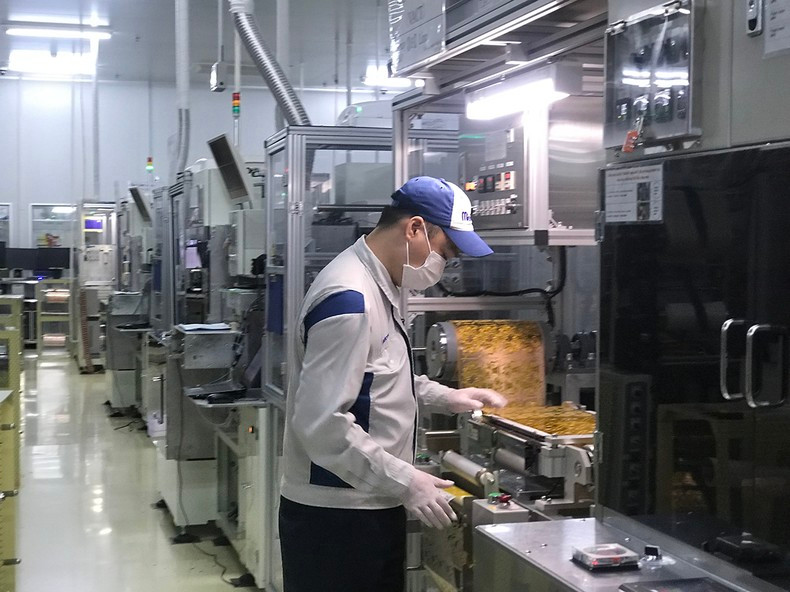 |
| Production activities at MekTec Manufacturing Co., Ltd., Thang Long II Industrial Park, Hung Yen Province. |
Making further investment in vocational training
Vocational training in Hung Yen Province has witnesses positive changes, with short-term and long-term vocational training facilities in the locality providing over 60,000 people to the labour market every year.
However, several shortcomings remain, which can be seen through the fact that the network of vocational training facilities in the area is unevenly distributed, and there are few high-quality vocational training facilities which can generate highly skilled workers or provide training in key occupations.
Furthermore, the progress of autonomy at vocational training facilities is still slow. The capacity of some vocational training facilities is still limited as the professional qualifications and skills of a number of teachers and managers have not yet met the training requirements; and the facilities and equipment are outdated; some training programmes are not updated to catch up with the current situation.
In addition, the enrolment process, especially in high-level vocational jobs, still faces certain difficulties; some occupations see low numbers of registers or even no registration at all.
There is situation that graduates not being able to have jobs that suit to what they have learnt, and number of workers that have proper skills and working style that meet the requirements of employers is still high.
Hung Yen Province is in the process of industrialisation, so it has high demand for skilled human resources, especially high-skilled workers.
By 2025, the province strives to achieve a rate of trained workers of 76%, with a rate of trained workers with degrees and certificates of over 40%.
Hung Yen Province has worked out many solutions to realise the above goals.
Accordingly, the province will review, rearrange, and complete the network of vocational education facilities in the locality in a synchronous, modern, and appropriate direction.
The provincial authorities encourage and facilitate enterprises, socio-political organisations, socio-professional organisations, and other organisations to establish vocational training institutions and participate in vocational training activities.
The province has promoted the financial autonomy at public vocational training institutions in provinces and districts, while stepping up the assessment and inspection of training quality of vocational training institutions.
Attention has been given to renovating and diversifying content, forms, programmes; incorporate education on working style, ethics, and lifestyle into training programmes to improve the quality of post-training workers to meet the needs of the labour market.
Priority has also been attached to mobilising state budget and social resources to improve training capacity for vocational training institutions by upgrading facilities and training equipment and enhancing the quality of teaching staff and management staff.
The province has allocated further investment in key vocational jobs and jobs that are in high demand.
The province has also developed mechanisms and policies to support human resource training, especially for people with permanent residence in the province who want to study at vocational training centres in the locality.
Programmes and projects on training highly skilled workers have been promulgated to meet the needs of businesses by 2030, in a bid to facilitate the implementation of the Prime Minister’s Decision No. 489/QD-TTg, dated June 10, 2024, on approving the planning of Hung Yen Province for the 2021-2030 period, with a vision to 2050.
